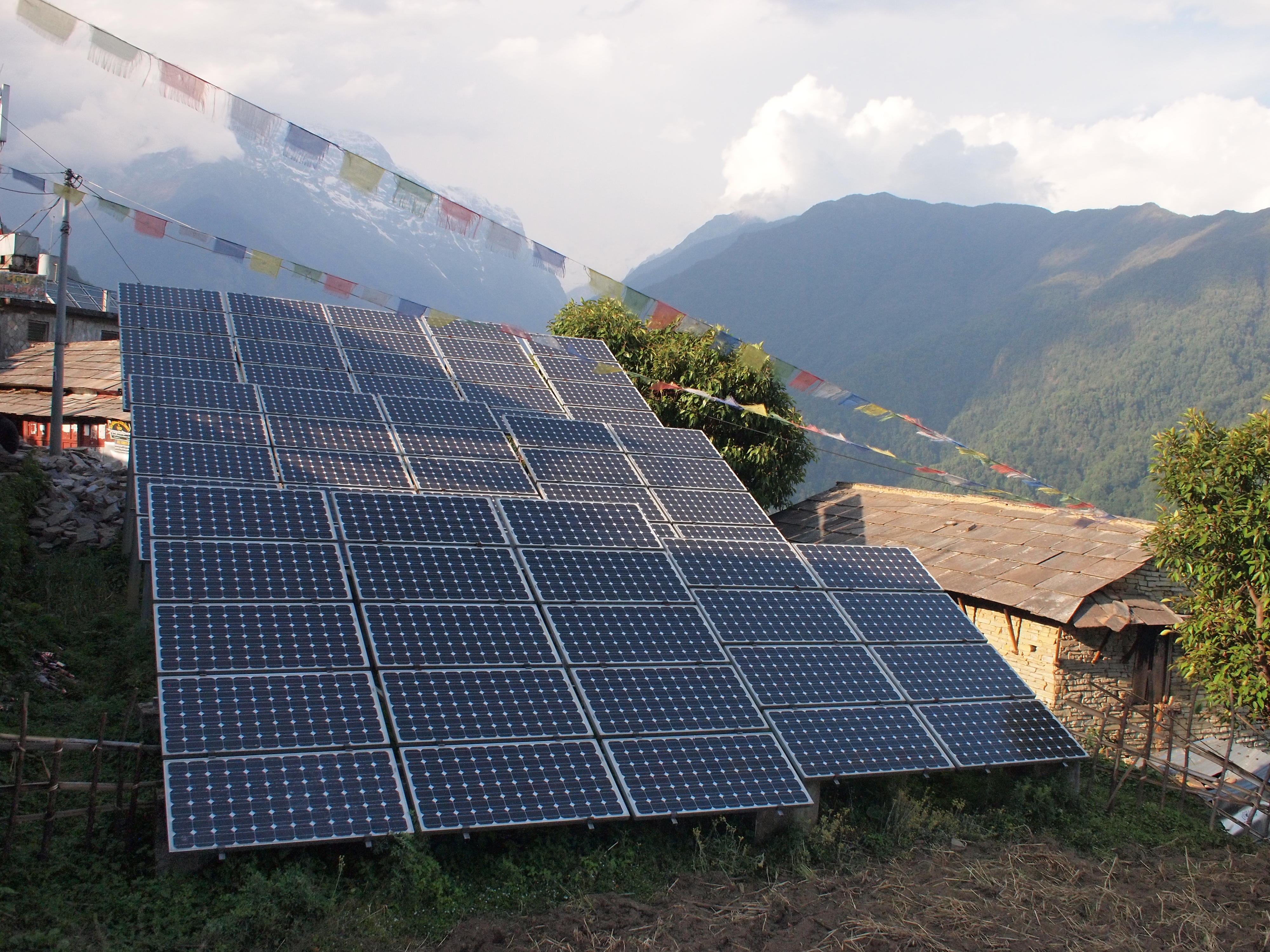Core area “Climate and energy, just transition” Reliable access to climate-friendly energy
Connecting people to the public power grid and expanding local power networks gives them reliable access to climate-friendly electricity and affordable, modern energy services.
Together with the European Commission, Germany is promoting the development of structures and processes that will enable long-term support for the use of renewable energies and energy efficiency at all administrative levels. This includes completing key basic legislation such as the energy efficiency and conservation bill. The promotion of renewable energies is also being integrated into local and regional planning and funding processes. Increasing energy efficiency in the private sector is helping to decrease the use of fossil fuels and lower greenhouse gas emissions.
Under Financial Cooperation, Nepal is receiving support for generating more electricity from renewable sources, in particular from solar power. Transmission lines and distribution grids are being expanded and modernised in order to deliver this sustainably sourced energy to Nepal’s economic hubs efficiently. In isolated areas that have no access to the electricity grid, the BMZ is financing the construction and expansion of communal solar power plants and solar-powered pumps for drinking water.
As at: 10/02/2023
